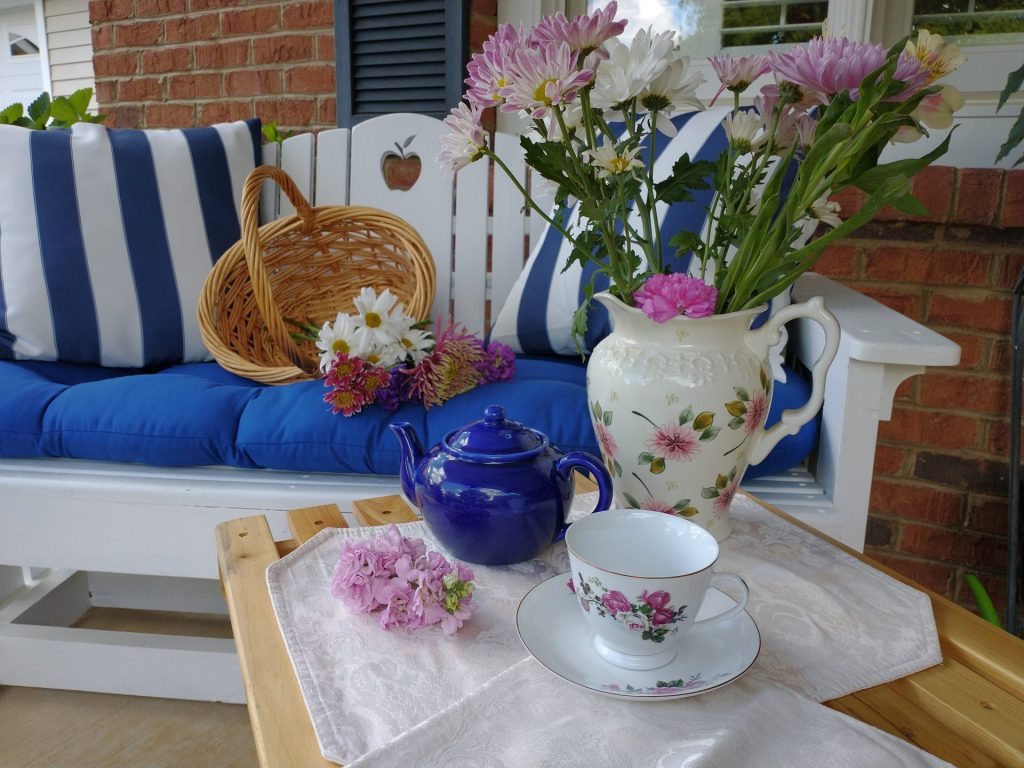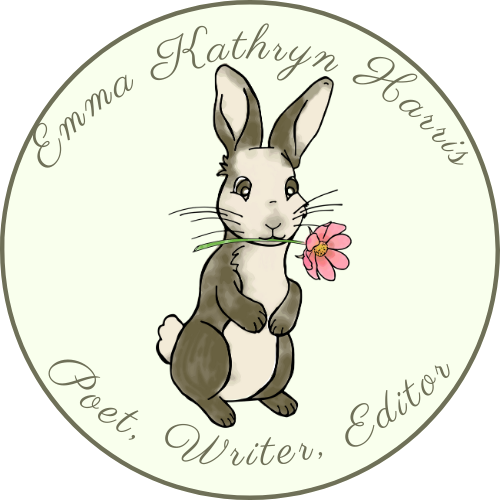A writer who waits for ideal conditions under which to work will die without putting a word to paper.”
E.B. White
What is your idea of a “perfect” writing environment?
My ideal space to inspire creativity for me is often sitting outside on my porch bench, surrounded by the beauty of my wildflower garden, the hummingbirds that buzz in front of me, the goldfinches and butterflies that are attracted to my cosmos, or the bees that seem thankful I have provided pollinating flora. It is calm, peaceful, and feeds my imagination. The sunshine invigorates my productivity.
When I have to type, work, and really knuckle down, I am at my desk in front of my computer. But my office is bright, with windows that invite sunshine to pour in. My hollyhocks and zinnias are tall and I observe them in front of me through the window. Some might find that setting distracting, yet creation calms me and I need all the relaxing methods I can get.
My desk area is open; my seat and keyboard are ergonomically positioned; I often have classical music playing in the background from my computer; and I try not to clutter my desk with piles of, well, stuff.
Our environment can affect our productivity. A clean, neat, comfortable and peaceful atmosphere will help our minds stay free of clutter. If our surroundings are noisy, haphazard, or distracting, that will affect our brains—our concentration and our writing ability.
While not everyone can work at the kitchen table like Jessica Fletcher, typing two to three bestsellers a year (only on television!); or work from our cabin on the lake with only the sounds of the water and the breeze to keep us company; most of us work in the real world. Emergency vehicles pass by with sirens blaring, children in the background scream “mom” every two seconds, a washer and dryer spin while we squeeze in work and chores. That is our reality.
However, there are a few things we can do to create our personal writing space that will help us feel more effective and inspired. Adjust the suggestions to suit your own needs. These are merely to offer ideas if you feel it is time to try something different.
Here are 6 general ideas:
1. Think clean and neat
Do you lose precious time when you work because you are hunting for documents, books, and other resources? While some might claim to work better in a disorganized environment, I am inclined to disagree since a disorganized space heightens a chaotic brain.
An organized workspace will help you regain lost time. Keep research materials near you for easy access, perhaps on a nearby shelf, in a drawer or in a file. Clear off your desk, especially at the end of the day so you begin the next day with a clean slate.
Have old computer equipment piling up you keep telling yourself you will recycle or put on eBay? It is still there. Mark a day on your calendar to follow through and get rid of it. Even stocked up in a nearby room rather than a corner of your office can be disconcerting.
2. Think sunshine
Cloudy, dreary days affect our mood. And the lighting in our office can have the same effect. If you do not have natural light, add lamps and overhead lighting. A light and ion therapy lamp for your desk could also help if you suffer from seasonal depression or just want that extra bit of brightness.
Lighting gives you the mental and emotional energy you need to keep going. When your mood is positive, you feel the physical effects too.

3. Think comfort
Do you sit a lot? Make sure your chair is comfortable, and your keyboard and desk are both ergonomically sound. Working while in pain is distracting.
Keep your equipment, such as your printer and other supplies, nearby and within reach. This will also save you time from getting up and readjusting yourself.
Decorate your office in a way that will inspire you. My flower photographs adorn my walls. When I cannot get outside, the images, at least, help my mood.
The key is to create the space that works best for you to be creative, motivated, and inspired in your writing.
Decorate your office in a way that will inspire you.
4. Think health
I added this because for us to stay focused, we must take care of our physical, mental, and emotional health. Our well-being does balance our creativity. And when you do take health breaks, you might be inspired with new ideas.
Go for a walk and get some fresh air. Get up and stretch. Take 30 minutes or more each day to exercise.
Drink lots of water to stay hydrated. Eat healthy foods. Avoid processed junk that makes you sleepy and clings to your gut.
Do what you can within your limitations. Find your happy “space” and stick to it for your own sanity.

5. Think few distractions
While we cannot control all distractions, there are some we can. For example, can you silence your phone while you work, including the buzzes and dings for each text message and social media comment? Even your computer can annoy you with pop up notifications and sounds, so turn them off.
Also, set aside a specific time to check your five email accounts rather than “checking” every few minutes or responding to the alerts. Email is one of the biggest time wasters and distractions. That and cat videos.
Make yourself a schedule with the times you plan on concentrating on specific tasks where you won’t allow for distractions. For example, you might set aside a couple hours just for writing and put your phone in another room, close your office door, and write what you can within those two hours. Adjust your “quiet” time, perhaps after the kids leave for school or you put them to bed, or before you check your email in the early morning. Whatever you choose, do what works for you.

6. Think consistent routine
Give yourself a consistent routine of when you do specific tasks. This prioritizes what you need to accomplish and helps you develop a habit.
Life happens. So when it does, you can enable yourself to get back on track if you have a routine in place. For example, if your habit is to write a couple hours in the morning, decide on a time slot that works for you, stick to it, and then if something comes up, you are in a better position to pick up where you left off.
If scheduling daily time slots does not work for you (perhaps you like to get a lot done at once), then you could choose days to do specific things. For example, Monday might be a big day of research. Tuesday you might write. Wednesday might be client work, finding clients, pitching agents, and other marketing. Thursday might be another full writing day. Friday might be wrapping up, social media posts, and getting ready for Monday.
Remember, our writing space is unique to us. Try some of the suggestions to see if they help boost your productivity and inspire your creativity.
Are there suggestions that were a new thought to you? What has worked best for you and your writing space? Please share!



